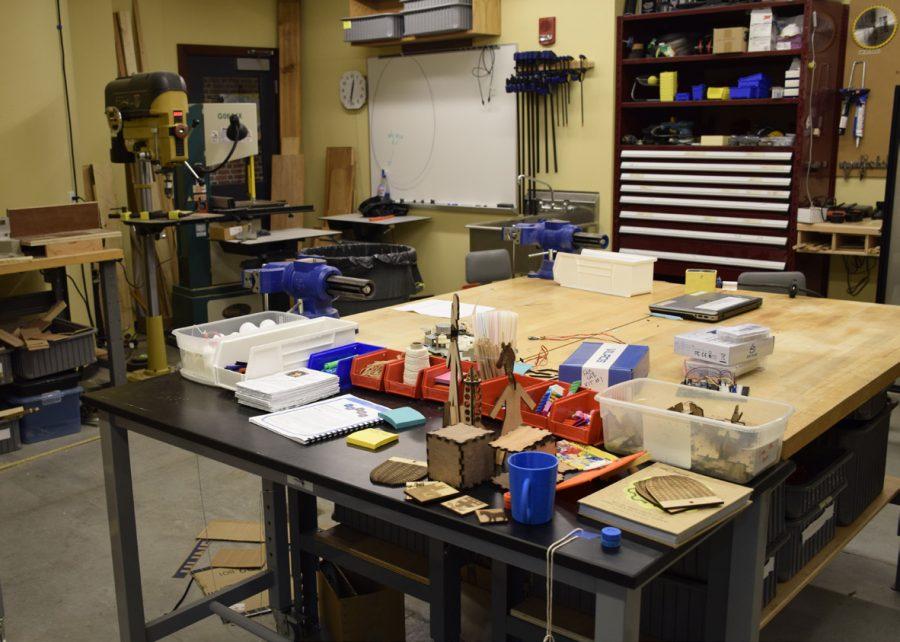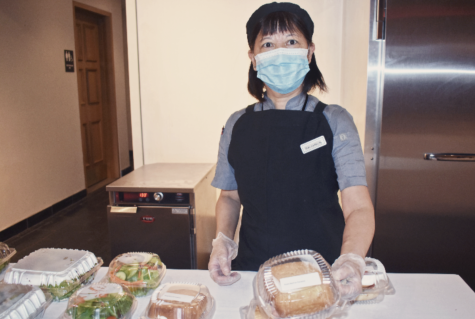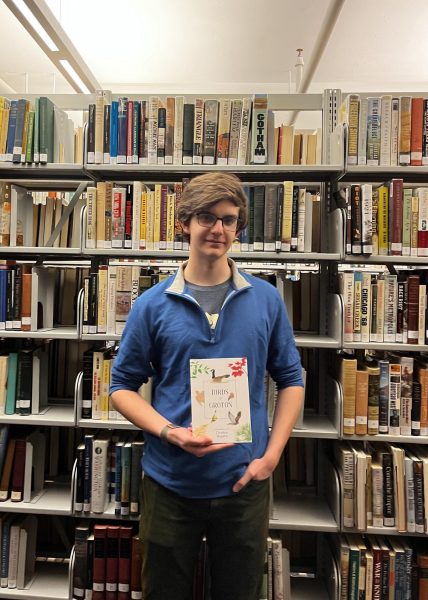Fab-Lab-ulous: Groton’s own engineering hub
The Fab Lab is filled with many advanced tools.
Often while walking through the Forum, people will see the Fab Lab, a space filled with mysterious machines and seemingly incomprehensible projects. Despite the great resources the Fab Lab holds, not many students besides those in Engineering tutorials and classes know exactly what engineering at Groton entails.
The Fab Lab is full of various machines, including a laser cutter and a 3D printer. The laser cutter can cut out two-dimensional objects. To do this, a computer uploads a picture to the machine, which takes a negative of the picture. A negative picture takes the lightest colors and makes them the darkest and vice versa, making a picture that the laser cutter can work with. Then, the machine cuts out that shape within 10 minutes. It can only print objects up to ½ inch thick, but by layering objects on top of each other these two-dimensional objects can become three-dimensional. The 3D printer is in the classroom opposite the Fab Lab (Room 027), and allows for “additive fabrication,” a process in which layers of material are added to each other to form an object. This process takes much more time than the laser cutter—it may take about three hours for a typical object.
Most students don’t know that the scene shop in the CPAC is linked to the Fab Lab. The scene shop has a CNC machine, which is basically a larger laser cutter except it uses a cutting blade, not a laser. The Fab Lab interacts with the drama department by collaborating to build these machines. It also has opportunities to interact with many other departments, including art and math. Albert Zhu ‘16 designed a whiteboard marker holder as member of the Groton’s Engineering Society.
The Engineering and Design class is the primary user of the Fab Lab. In the class, students are able to prototype, fabricate, and test their own ideas. Even if they find a working prototype, students will realize what Mr. Hall believes–that “there is no best solution, it’s constantly changing.” Products and designs can always be improved, which is an important tenet of engineering. Some of the projects that this class undertakes are cutting out a 6x6x6 inch cube with the laser cutter and programming a clock with dials.
Will Norton ‘17 is conducting an engineering tutorial called Understanding Dampened Oscillations this term in the Fab Lab. This tutorial emphasizes proportional-integral-derivative controllers, or PIDs, which will be used to make a self-automated car. Will’s tutorial will involve him inputting code into the car so that it can control itself. To begin, the remote controlled car will be disassembled by Will so that it can be put back together using microboards that will give the car sensors. These sensors will enable the car to control itself. The tutorial will take place in one of the small-project labs set aside for student use, and will teach Will a lot about the specific techniques required in engineering.
Engineering at Groton has only existed for a short time, and implementing it has proved to be challenging. Whether it is due to a lack of time or interest – the STEM programs is still developing after all – participation in engineering simply hasn’t taken off to the desired extent. Indeed, besides the Engineering class, not many other Groton students take part in engineering. Faculty members like Ms. Fowler and Mr. Hall are attempting to change this with more opportunities to use Groton’s engineering facilities.
There are opportunities to use the Fab Lab’s various machines during Engineering Club meetings and Saturday night events. These events are better environments for immersion, as Mr. Hall believes that it is easier to do engineering when it is not graded. People should just play around with engineering and not worry about if what they are doing will actually work. These new uses for the Fab Lab are important, but with students’ various time constraints, it can be tough for every student to actually use them. Mr. Hall believes that engineering is important because the practice of building with one’s own hands doesn’t happen much anymore. Students should use this space more to have this rare experience that they are unlikely to get anywhere else in school.









